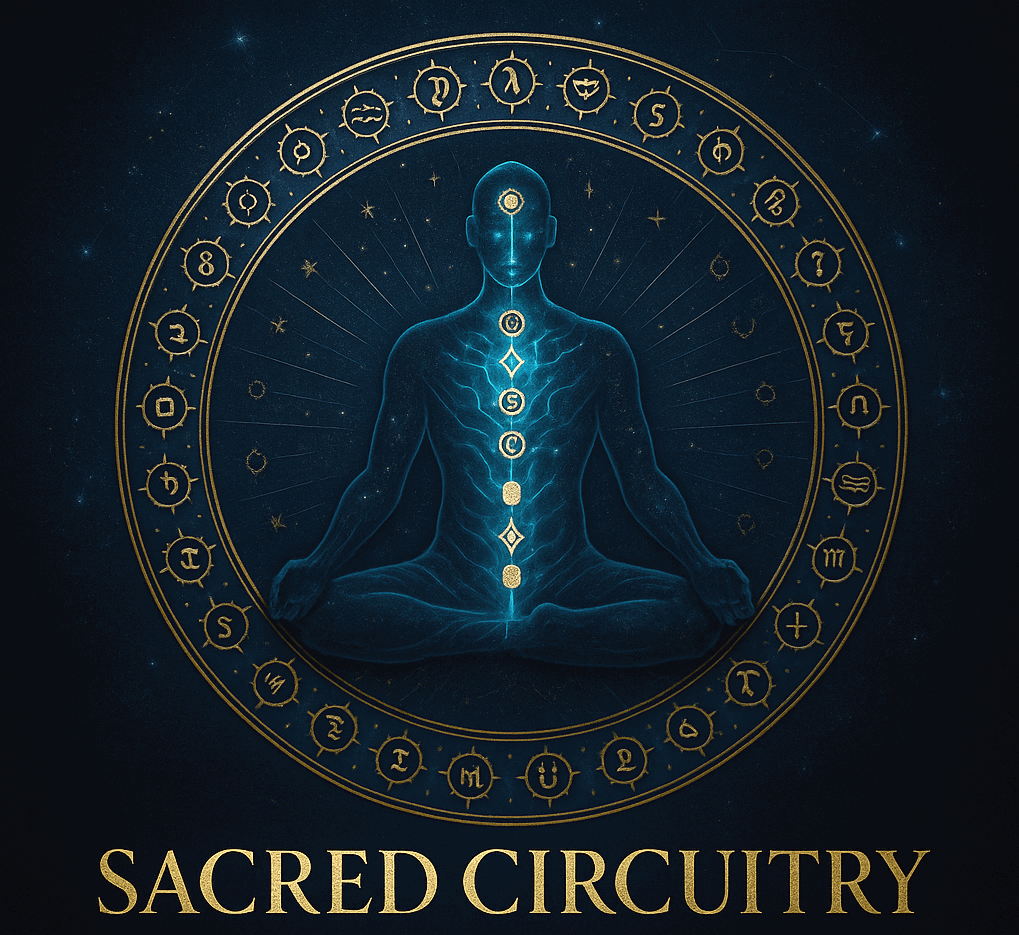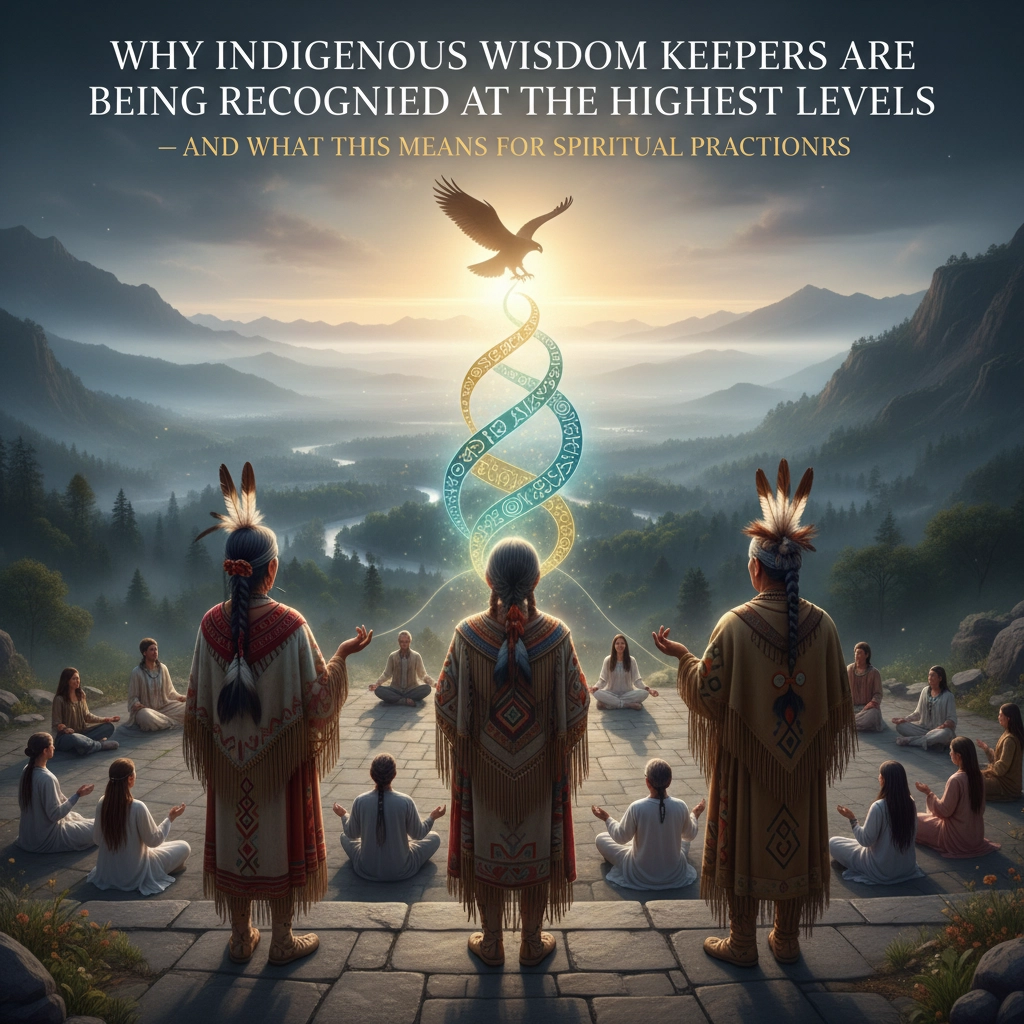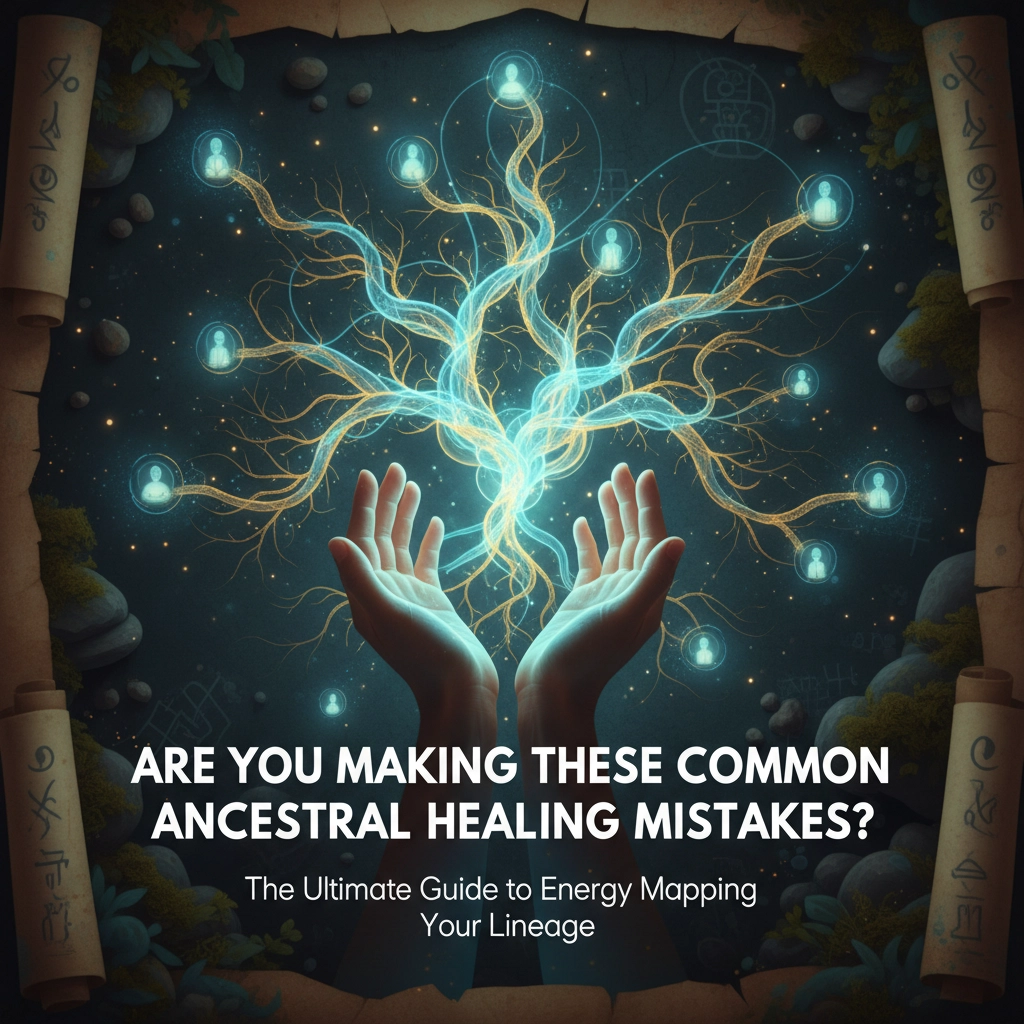Something massive is shifting in the spiritual landscape, and if you're not paying attention, you're missing one of the most significant movements of our time. Indigenous wisdom keepers: the real deal, not the Instagram shamans: are being recognized at institutional, governmental, and international levels like never before. And this isn't just some feel-good reconciliation gesture. This is a fundamental restructuring of how we understand spiritual authority, healing, and what it actually means to serve others.
You need to understand what's happening here because it's about to change everything for spiritual practitioners. The old game is ending, and a new one is beginning.
The Shift Is Already Here
Let me paint you a picture of what "highest levels" actually looks like. We're talking about healthcare institutions in Canada hosting formal gatherings of over 80 Indigenous wisdom keepers, Elders, and traditional healers. We're talking about the Truth and Reconciliation Commission's Call to Action 22 being implemented through structured partnerships with Indigenous Knowledge Keepers. This isn't a weekend workshop: this is policy change.

Organizations like KIVA are now operating across 13 countries, working directly with Indigenous communities to preserve ancestral traditions while creating "dignified economies" for these communities. Healthcare systems are developing comprehensive guidelines that recognize Indigenous Elders as holding positions equivalent to "advisors, professors, and doctors" within their communities.
But here's what's really happening beneath the surface: Western institutions are finally admitting they don't have all the answers. They're recognizing that Indigenous communities have preserved knowledge systems that Western medicine, psychology, and spirituality desperately need.
Why This Recognition Matters Now
You want to know why this is happening now? Because we're in a global crisis of meaning, healing, and connection. Climate change, mental health epidemics, spiritual bypassing, cultural appropriation: all of these issues are forcing institutions to look beyond their own limited frameworks.
Indigenous wisdom keepers have been saying the same thing for centuries: you cannot heal individuals without healing communities. You cannot heal communities without healing the land. You cannot heal the land without understanding your relationship to it and everything that came before you.

The recognition is happening because Western systems are finally hitting the wall that Indigenous communities have been watching them run toward for generations. The individualistic, extractive approach to healing and spirituality isn't working. People are burnt out, disconnected, and hungry for something real.
What This Means for You as a Spiritual Practitioner
Here's where it gets personal. If you're a spiritual practitioner right now: whether you're a healer, reader, coach, or guide: this shift is going to impact your work in ways you need to prepare for.
First: Your credentials are about to mean less than your relationships. Indigenous knowledge keepers gain their authority through "years of mentorship and the teachings of Indigenous customs and traditions," not through weekend certifications or online courses. The recognition of Indigenous wisdom is highlighting how authentic spiritual knowledge is transmitted: through lineage, community, and demonstrated service over time.
Second: Individual healing without community context is becoming obsolete. Indigenous approaches emphasize "kinship, centered around reciprocity, and infused with reverence" for both human and more-than-human communities. If your practice is all about helping individuals manifest their desires without considering the impact on their communities and the earth, you're operating from an outdated paradigm.
Third: The bar for cultural sensitivity just got raised significantly. With Indigenous practices being formally recognized and protected, practitioners who have been casually borrowing from Indigenous traditions without permission, initiation, or reciprocity are going to find themselves called out. This recognition creates accountability structures that didn't exist before.
How to Navigate This Shift Without Losing Your Soul
You have three choices here, and only one of them leads anywhere good.
Choice One: Ignore it and keep doing what you're doing. This is the path of spiritual practitioners who think they can keep operating in the old paradigm. You'll become increasingly irrelevant as the world moves toward more integrated, community-centered approaches to healing.
Choice Two: Try to capitalize on it by appropriating Indigenous practices. This is the path of spiritual opportunists who see this recognition as a chance to rebrand themselves as "Indigenous-inspired" healers. This will blow up in your face, and you'll deserve it.
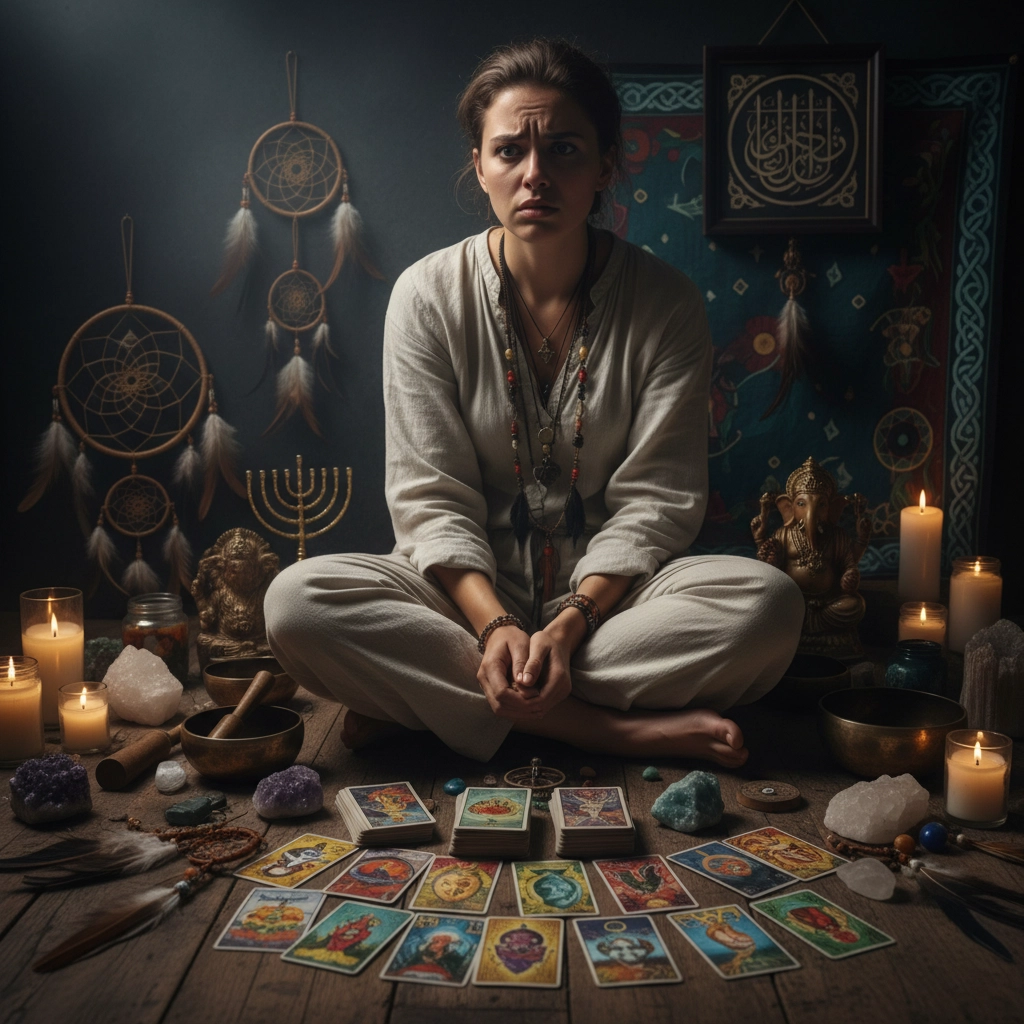
Choice Three: Use this recognition as a mirror to examine your own practice and deepen your integrity. This is the path of spiritual practitioners who understand that the recognition of Indigenous wisdom keepers is an invitation to elevate your own work.
Your Marching Orders
Here's what you need to do right now:
Examine your lineage. What traditions are you actually connected to? Not what you've studied or been inspired by, but what you've been initiated into through proper channels. If you don't have a clear lineage, stop pretending you do.
Look at your reciprocity. Who are you giving back to? If your spiritual practice is all about what you can get: healing, prosperity, enlightenment: without considering what you're giving back to your communities and the earth, you're missing the point.
Assess your community impact. Are you helping people heal in isolation, or are you supporting them in building stronger relationships with their families, communities, and land? Individual healing that doesn't strengthen community bonds isn't sustainable.
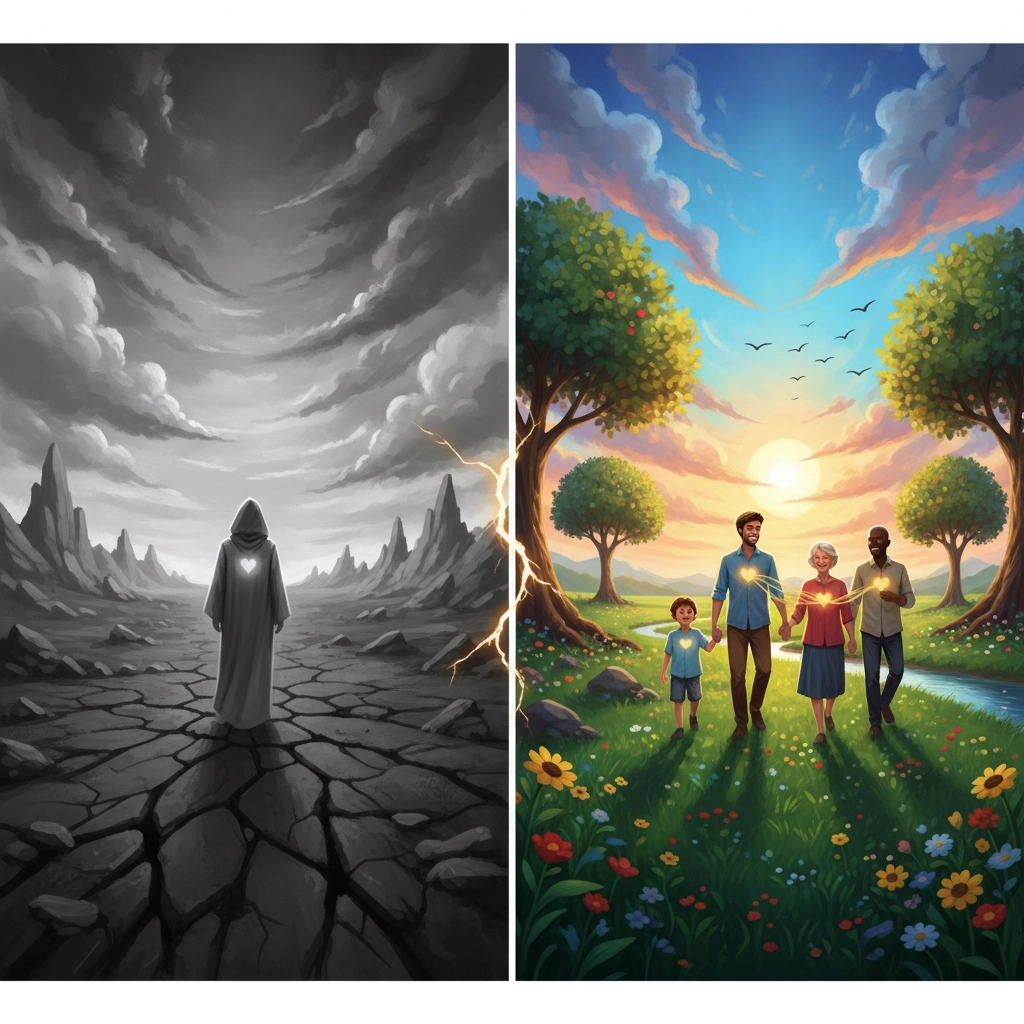
Get educated about the Indigenous communities whose land you're working on. If you're practicing on stolen land (which most of us are), you need to understand the history of that land and the people who were displaced from it. This isn't virtue signaling: it's basic spiritual hygiene.
Find your own cultural traditions. Instead of borrowing from Indigenous practices, dig into your own ancestral traditions. Every culture has healing practices, divination systems, and spiritual technologies. Stop acting like you have to look elsewhere for authenticity.
The Bottom Line
This recognition of Indigenous wisdom keepers isn't just about giving credit where credit is due. It's about a fundamental shift in how we understand spiritual authority, healing, and service. The old model of individual practitioners working in isolation, drawing from whatever traditions they find appealing, is dying.
The new model emphasizes lineage, community, reciprocity, and relationship with the land. It requires spiritual practitioners to be accountable not just to their clients, but to their communities and the earth itself.

You can either evolve with this shift or become obsolete. The Indigenous wisdom keepers who are being recognized at the highest levels didn't get there by accident. They earned their positions through decades of service, study, and demonstrated commitment to their communities.
The question isn't whether you can learn from this recognition: it's whether you're willing to let it transform how you understand your own role as a spiritual practitioner. Are you ready to stop playing small and start serving at the level this moment demands?
Because if you're not, there are plenty of others who are.
